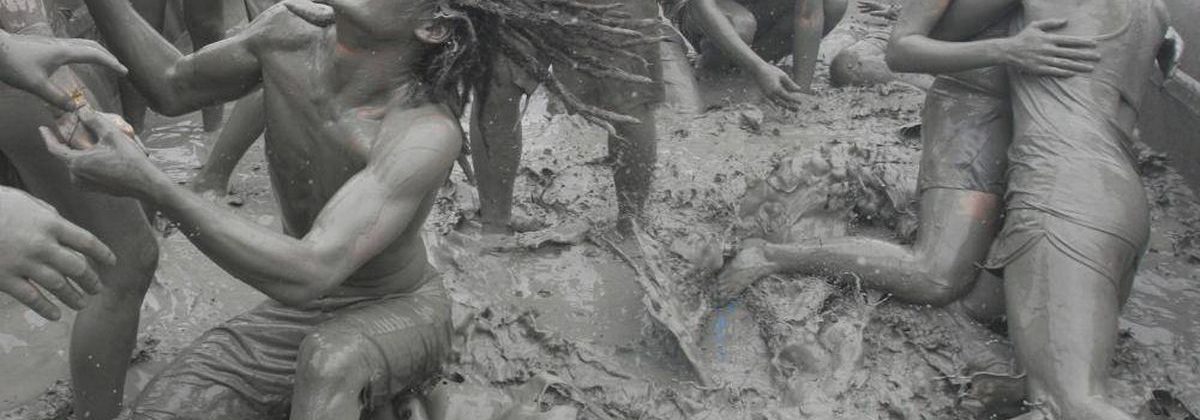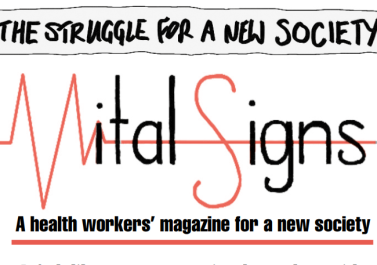
It’s that time of year again when we look back on our collective activity, which this year largely consisted in trying to make sense of mini-budgets, mega-meltdowns and the various attempts to surf a strike wave that was less Hawaii and more Weymouth. On a more serious note, this was a pretty heavy year. After the general tensions around the question of how to relate to the state’s lockdown measures, the debate around the war in Ukraine and the meaning of ‘international solidarity’ caused a lot of friction in the collective. These things cannot be avoided. We aspire to be an organisation of communist working class militants, which requires both discipline and clarity, but we also feel that our debate and practice is still in a phase of open experimentation, as old truths and rituals won’t save us. In the coming year we want to focus more on the analysis of the current strike experiences and the creation of spaces to debate these experiences openly and critically. We need comrades who are up for this and who have the patience to walk the walk with us. Contact us if you feel similar.
* Militant activity
Perhaps because of the wider political turmoil our practical involvement amongst our co-workers was limited this year. We are not a trade union and we don’t see ourselves as workplace organisers as such, but rather as working class militants who try to re-create a relation between day-to-day struggles and a communist or revolutionary perspective. Any discussion about working class strategy and political trajectories remain bloodless if they are not in constant communication with shop-floor or staff room realities. We were mainly engaged at Heathrow airport and a couple of bigger hospitals and hope to intensify this work next year.
At Heathrow, the local solidarity network is still around and we produced an airport workers’ newsletter for the area. We continue our attempts to make local connections and involve ourselves in trades councils. Struggles are picking up slowly again after the pandemic, in the meantime the local aviation experience enabled us to at least write a poignant critique of a Netflix documentary!
Some of us AngryWorkers work in the health sector and in terms of ‘output’ our main effort this year was the publication and presentation of ’Sick Of It All’, a book on struggles in the NHS. You can watch a video interview around the book here. The other main public focus was the production of material for our health workers blog. In order to prepare ourselves for the current pay struggle in the NHS we read about previous experiences, e.g. the nurses strike of 1982 and were lucky enough to stumble across Jonathan Neale’s great book. We contrasted these historical experiences with current conditions by interviewing some of our co-workers, e.g. a respiratory nurse on staffing levels and a mental health nurse about the impact of the pay campaign. We also looked for inspiration beyond the national borders and followed the strikes of health workers in Germany closely. As union reps we took part in national union gatherings and shared our thoughts. When the pay dispute heated up during December we participated in pickets and published a strike newsletter, asking the pertinent question: Whose strike is it? We asked this question on our wards and local picket lines…
* Strike reports
Although we went to various pickets and strikes and distributed leaflets, for example during the Amazon wildcat strike or with our programatic leaflet during the rail strike, we only managed to conduct a few in-depth interviews with workers in struggle this year. We had a really interesting conversation with a teacher who was part of the Pimlico Spring, a school student revolt in London. We also interviewed a close friend and comrade about his experience during the rail strikes, as a militant worker and RMT rep. We are not cheerleaders of strikes nor do we see strikes as recruitment grounds, as most of the left does. Strikes are chances for our class to break down barriers and to learn how to organise our power and productive force collectively. Only a harsh criticism of our own struggles and their weaknesses can help us to learn. In general we have to ask the question about the role of specific struggles that can become a leading force and political focal points for others. Here we mainly used the example of the current mobilisation at GKN in Italy.
* Inquiry
Strikes and class movements don’t just depend on the militant spirit of their participants, but on their material position within society and vis-a-vis capital. We translated two outstanding texts on the changes within global transport and the crisis of microchip production, as examples for the two main sectors that changed capitalist production and class relations over the last three, four decades.
* Debate on organisation
While the structure of the production process and the material composition of the class are the objective conditions for our movement, it will depend on conscious organisational acts to transform ‘objective conditions’ into conditions for emancipation. We tried to further the debate on working class organisation primarily by referring to a debate of German speaking comrades from Comunaut, who raise the question of the role of mass organisations and by reviewing the experience of the political factory committees in Italy in the 1970s.
* Debate on Ukraine
As mentioned, we had pretty tense discussions on the war in Ukraine, subjectively summarised in an article ‘on the fragments of a debate’. Following this, we had an exchange of individual contributions regarding the political line of ‘no war but the class war’, the question of ‘armed resistance’, ‘on dogmatism’, on the question of ‘revolutionary defeatism’ and a review after ‘100 days of war’. We had a collective trip to the meeting of the Permanent Assembly Against The War in Sofia, whose manifesto we signed. For the wider debate about the current moment, we translated an article on ‘chaos and fermentation’, written by comrades from Germany.
In February 2023, after one year of carnage, we will try to have another meeting primarily dedicated to the discussion about the war. We are in touch with comrades who organise solidarity convoys to mining workers in Ukraine, but the political differences within the collective and the way we conducted the debate meant that we remained largely paralysed when it comes to practical international solidarity or anti-war activities.
* Internationalism
We feel a great need to learn from the global experience of our class and to act from an internationalist perspective. We summarise developments in the UK for comrades abroad and we try to provide information and analysis on relevant global struggles on our blog, if possible through direct correspondence. In 2022 we wrote about the contradictory nature of self-management in Argentina, school occupations and dock workers collectives in Italy, riots of unemployed youth in India, factory occupations of dismissed workers and strike of delivery workers in Turkey, port workers’ strikes in Greece, the Striketober in the US, wildcat strikes by steel workers in Brazil, the impact of the lockdown on workers in China, the misery of postal workers in Austria, the problem of far-right participation in anti-war demonstrations in Czech Republic, independent working class collectives in Marseille, teachers strikes in Iran and the condition of the working class in Russia. Again, collective efforts need face to face meetings and we hope to organise an internationalist summercamp in 2023.
* Self-education
We managed to organise various reading group sessions during 2022 and summarised some of the debates for the wider milieu, e.g. our discussion on climate change, social reproduction theory and the question of formal structures for political groups. Our reading groups are open to new comrades, if you are interested, get in touch! Another effort in terms of self-education and debate was our engagement with a new documentary on climate change and class struggle, ‘The Loud Spring’. We organised a few screenings and discussion events – if you are interested in organising one in your town, drop us a line!
* AngryWorkers meetings
Collective work needs face to face meetings and get-togethers, for clarity of thought and human spirit. We organised a few internal meetings in 2022, you can read short reports about the meeting in Sheffield and Bristol.



